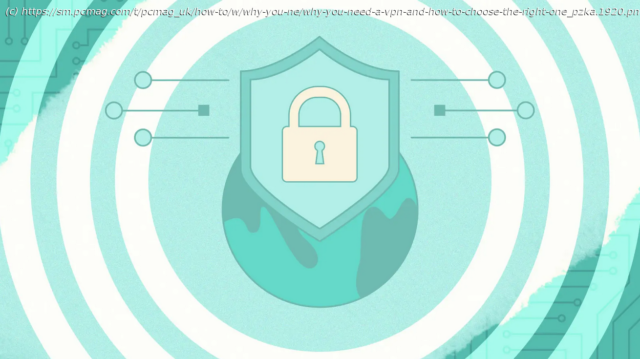VPNs can protect your privacy—if you use them right. We explain what VPNs do, what they don’t, and how to get the most out of the service you choose.
VPNs have gone from being an obscure networking utility to big business. You’ve probably noticed the ads from your favorite YouTuber, on podcasts, or even during the Super Bowl with claims about how a VPN can make you anonymous or let you access free video streaming. Do the products live up to the hype? Although VPNs can be useful tools for protecting your privacy, it’s important to understand how these tools work so you can decide whether they will help you. We break down how a VPN works to help you understand why you may want one and how to choose the best one for you. What Is a VPN?
VPN stands for « virtual private network. » When we talk about VPNs, we usually refer to a commercial VPN selling its service directly to consumers. Still, VPNs have much broader applications and have been in use for decades. Corporations have long used VPN technology to let workers access digital resources no matter where they are, long before many of us started working from home.
When you activate a VPN, your device creates an encrypted connection (often referred to as a « tunnel ») that connects to a remote server operated by the VPN provider (or in corporate settings, your company IT department). All your internet traffic is routed through this tunnel to the server, which sends the traffic off to the public internet as usual. Data coming back to your device makes the same trip: from the internet, to the VPN server, through the encrypted connection, and back to your machine.
Remember that you don’t need another company to set up a VPN. There are a few options to set up your own, such as Outline, or you can build one with some know-how and spare PC parts. Doing so is fairly straightforward, but you’ll need to rent or maintain that VPN server on your own, which is definitely more complicated (and prone to security risks) than paying a VPN service to handle it instead. While there are some things you can do to make a self-hosted VPN more accessible, it’s usually best left to tinkerers who are eager to get their hands dirty.Do VPNs Make You Anonymous Online?
Encrypting your traffic and routing it through a VPN server makes it harder (but not impossible) for observers to identify you and track your movements online. No VPN provides total anonymity, but it can help improve the strength of your overall online privacy toolkit.
For example, your home internet service provider (ISP) is probably the single entity with the most insight into what you do online, second only perhaps by your cell phone carrier. The FTC issued a report in 2021 outlining exactly how much your ISP knows about what you do online, and it’s a lot. Worse, thanks to Congress, your ISP can sell anonymized customer data. If you don’t like that a company you’re already paying is profiting from your data, or if you have concerns about ISPs hoarding detailed information about your activities, a VPN will help. Not even your ISP can see your web traffic when you use a VPN.
VPNs also make it harder for advertisers and others to track you online. Normally, data is transmitted from the internet to your device, and vice versa, using the IP address that’s been assigned to your device by your ISP. When the VPN is active, your true IP address is hidden, and anyone watching you can only see the IP address of the VPN server.
However, as we mentioned, VPNs do not make you fully anonymous. Advertisers have plenty of ways to identify and track you as you move across the web. Website trackers and cookies try to identify you and then watch for where you appear next, and a VPN alone can’t do anything about that (although many offer tools to help).
Sites and advertisers can also identify through unique characteristics like your browser version, screen size, and so on. This information is harmless, but when companies compile enough of these identifiers, they form a unique signature—so much so that the process is called browser fingerprinting. Ad and tracker blockers, like those found in some browsers or as standalone tools like the Electronic Frontier Foundation’s (EFF) Privacy Badger, address some of these concerns.
Tor can also guard your privacy and grant you access to the dark web. Unlike a VPN, Tor bounces your traffic through several volunteer server nodes, making it harder to trace. It’s also managed by a nonprofit organization and distributed for free. Some VPN services will even connect to Tor via VPN, making the network easier to access. However, the performance trade-off is high. Tor can slow down your connection significantly due to the number of hops your data goes through between your device and the internet. Tor isn’t a perfect privacy solution, either. It has plenty of weaknesses to consider before you jump in.






